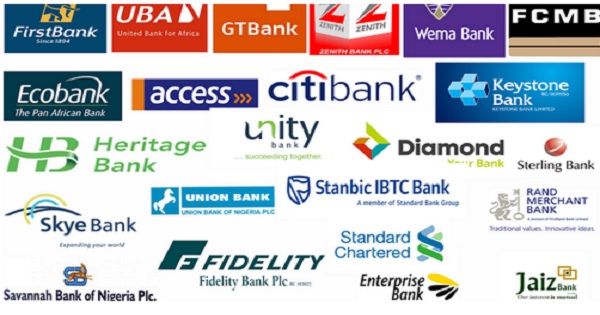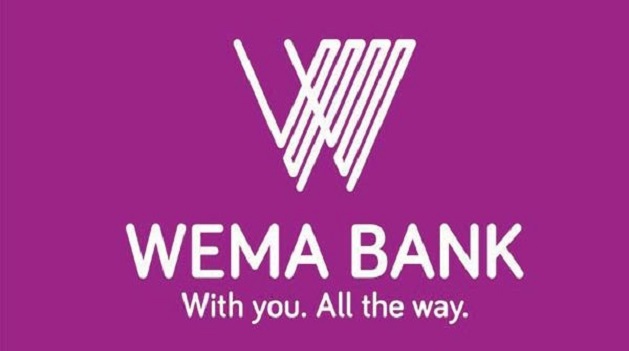E-Financial
NBS Says 2 out of 5 Bank Workers Contract Staff

National Bureau of Statistics (NBS) has said that two out of every five people working in Nigerian banks are contract staff.

According to analysis of data provided by the National Bureau of Statistics, as at the end of September 2020, 23 banks operating in employed a total of 95,888 workers. Out of this number, 40,382 of them were contract on contract. This means that 42.11 per cent of the workers are on contract.
Institutions covered in the employment statistics include commercial banks, merchant banks and non-interest banks.
A contract employee is an individual retained by a company for a predetermined time and cost. The employer is usually not responsible for providing a variety of traditional employer benefits such as pensions and health insurance.
A variant of contract job is casualisation. Shrinking economy and the consequent growing unemployment and underemployment have many workers susceptible to casual and contract jobs.
Further breakdown of the data provided by the NBS showed out of the banks’ total workforce, 241 were executive staff; 17,618 were senior staff, 37,647 were junior staff while the rest were on contract level.
The NBS revealed that the total number of contract staff in the banking sector stood at 45,350 in Q4, 2019, while the total staff was 103,610.
In the first quarter of 2020, the banks had 41,181 contract staff out of 96,975 workers; while in Q2, 2020, the sector had 38,942 contract staff out of 94,498 workers.
The need to cut down on cost had forced a number organisations to resort to contract employment which a number of labour unions are opposed to.
E-Financial
NIMC, NIBSS, Others Roll out Digital Cards with Multiple Wallets

National Identity Management Commission (NIMC), Nigeria Interbank Settlement Systems (NIBSS), AfriGO and other stakeholders are set to roll out digital cards with multiple wallets to drive financial inclusion and improve Nigeria’s Gross Domestic Product (GDP).

The digital cards with multiple wallets would allow Nigerians to have access to government services in all Ministries, Departments and Agencies (MDAs) of government, while it would also provide platforms for students to access government loans.
Already, Nigerian farmers captured under the Federal Ministry of Agriculture and Food Security, (FMAFS) have embraced the digital cards for government services in areas of provision of agric loans, seedlings and other inputs that would improve food production and security.
According to Abisoye Coker-Odusote, director general/chief executive officer, NIMC, the biometric NIMC-enabled cards have multiple features to address the socio-economic needs of Nigerians in line with the 8 point Agenda of President Bola Tinubu.
Coker-Odusote, who addressed newsmen at the headquarters of NIMC in Abuja on plans regarding the launch of the cards, was flanked by Mr Premier Oiwoh, managing director/CEO, NIBSS; Mrs Ebehije Momoh, managing director/CEO of AfriGO; and Mr Femi Akande, managing director, Data Mining Company.
She said the stakeholders were brought together to explain the different benefits associated with the digital cards to Nigerians and the general impact it would have on the economy as President Tinubu hoped to drive his welfare programmes using digital identity verification as a major platform.
The NIMC boss said the multiple purpose cards would be available to citizens, home and abroad and legitimate residents who could use the cards for various transactions, especially payments of water and electricity bills, transportation services, and shopping, among others.
The cards, she explained, could be used off line and online to provide services for unbanked citizens in rural areas and bring on board those whose businesses required government support for survival, noting that with such opportunities, Nigerians would need no god father to access government services and support.
Coker-Odusote said the digital cards which come with various security features cannot be forged as the biometric information of owners are embedded in them, emphasising that they were made to address current needs of government to ensure that there are no ghost beneficiaries of government palliatives, loans and other benefits.
She assured that the cards would turn around the economy by improving revenue generation and the country’s GDP as states governments and the private sectors would be part and parcel of it.
Speaking on behalf of other stakeholders, Momoh of AfriGO, said the launch of the cards would change the narratives for the country’s economy as it would ensure that the flow of money remained within the economy.
Momoh said: “The digital card is a domestic solution to drive financial inclusion and provide cost effectiveness and transparency within the systems. It would ensure data sovereignty and autonomy, and we all know that data is significant to improve our economy.
“This card will help reduce cost, especially dollar given to banks. Domestic payments are important to support welfare and social interventions services of government, so it will help drive cashless policy and ensure that our monies remain within the economy.
“We have about 26 banks already issuing the cards and it is hoped that more would come on board. Nigeria is the first country to come up with this innovation, and surely it would enhance micro-medium enterprises across the country.”
E-Financial
Wema Bank Targets N200bn in Final Tranche of Capital Raise

Wema Bank has announced plans to conclude its capital-raising efforts with a robust strategy combining a Rights Issue and a Special Placement exercise, both scheduled to commence on April 1, 2025.

The initiative aims to secure N200 billion in fresh capital, marking a significant milestone in the bank’s growth journey.
This marks the second and final tranche of Wema Bank’s comprehensive capital-raising exercise, following the successful first tranche, which generated N40 billion.
By securing this additional capital, the bank is poised to exceed the Central Bank of Nigeria’s (CBN) minimum capital requirement for national banking authorization, thereby solidifying its financial strength and positioning for sustained growth.
The move underscores Wema Bank’s commitment to maintaining robust financial health while enhancing its ability to deliver innovative banking solutions.
In its usual manner as a proactive, innovative and forward-thinking bank, Wema Bank, had prior to the CBN announcement, already launched a N40 billion rights issue as far back as December 2023, receiving the approval of the CBN and the Securities and Exchange Commission (SEC) in 2024.
This resulted in the Bank’s successful completion of the first tranche of its capital raise exercise. With over 30% of the CBN target of N200 billion already met, Wema Bank is proceeding to initiate the second tranche of capital raise come April 2025, this time, with the goal of raising N200 billion in fresh capital to complete its capital requirement.
Confident in the outcome of the upcoming rights issue, Wema Bank’s Managing Director and Chief Executive Officer, Moruf Oseni, assured shareholders and other stakeholders of a successful conclusion of the capital raise program.
According to him, “We stand strong today not just as Nigeria’s oldest indigenous bank but also as Nigeria’s leading innovative bank. Wema Bank turns 80 this year and I can safely tell you that we have never been more driven to excel.
I am blessed to lead with the support of a team of determined and driven professionals who will leave no stone unturned in achieving our strategic aspirations. Indeed, we are building Wema Bank into a formidable force in the African financial services landscape”.
“We remain dedicated to maintaining transparency throughout this process and will provide regular updates to all stakeholders and shareholders as we go forward. This capital raise will be a win-win for us all. You can trust as always that your investment in Wema Bank will produce exceeding returns. This is our promise to you”, Oseni concluded.
With the deadline for CBN’s recapitalisation exercise set for March 31, 2026, this move by Wema Bank will undoubtedly ensure the bank retains its national banking license way ahead of the deadline
Reaffirming its stance as a Bank committed to transparency and adherence to regulatory standards, Wema Bank is working to secure all necessary approvals from relevant regulatory authorities to ensure the process is conducted in full compliance with applicable guidelines.
E-Financial
NGX Warns Public of Fraudulent Impersonation by ‘Value Gain’

Nigerian Exchange Limited (NGX) has issued a stern warning against fraudulent activities, following reports of an individual and entity masquerading as affiliates of the Exchange.

In a strongly worded statement posted via its verified official X handle on Monday, the Nigerian Exchange Limited (NGX) cautioned the public about the actions of an alleged impersonator, ‘Professor Adebayo Oluwatokun,’ and a purported organization, ‘Value Gain,’ who are reportedly exploiting the trust of investors by falsely claiming affiliation with the NGX.
The pair are said to be operating a deceptive WhatsApp group, “NGX GroupA7,” designed to mislead and manipulate unsuspecting individuals.
NGX unequivocally clarified that neither ‘Professor Adebayo Oluwatokun’ nor ‘Value Gain’ has any association with the Exchange or its subsidiaries, nor are they registered Trading License Holders.
In a statement, NGX emphasized that all claims or communications originating from these individuals or entities are fraudulent, and the public is strongly urged to refrain from engaging with them.
The Exchange reaffirmed its dedication to safeguarding the interests of investors and maintaining the integrity of the Nigerian capital market. NGX encouraged individuals to promptly report any suspicious activities in order to prevent further exploitation.
This advisory comes in the wake of growing concerns over the rising incidence of fraudulent activities within the Nigerian capital market, particularly those linked to stockbrokers and dealing member firms.
There has been increasing scrutiny over the lax enforcement of Know Your Client (KYC) protocols, which some believe has facilitated these infractions.

 Telecom1 day ago
Telecom1 day agoNLC Announces Nationwide Boycott over Telecom Hike

 Telecom1 day ago
Telecom1 day agoMTN’s New Year Campaign: Inspiring Change, One Move at a Time

 Telecom1 day ago
Telecom1 day agoSamsung Galaxy S25 Series: Redefining Smartphones with Advanced AI Integration

 Telecom1 day ago
Telecom1 day agoFG, WIOCC Sign $10M MoU to Connect 3 million Homes with Broadband Fibre Connectivity

 Telecom1 day ago
Telecom1 day agoAll the Android updates coming to the Samsung Galaxy S25 series and more

 General News1 day ago
General News1 day agoCBN’s FX Code to Boost Transparency for Launch on January 28

 Telecom1 day ago
Telecom1 day agoMainOne Boosts Connectivity for West African Businesses with Equiano Cable

 News1 day ago
News1 day agoSocial Impact Champions Call for Business Investment in African Women and Girls



























